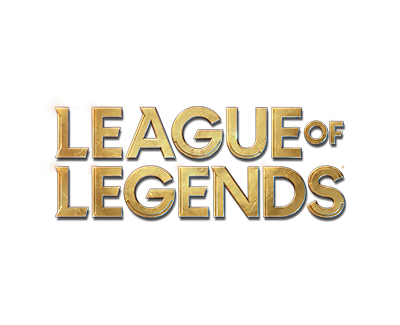

When League came to Asia nobody except the Koreans(thanks broodwar) knew what gg means. And because gg sounds very similar to penis(pp) in Mandarin people would get super confused if you type gg at the end of the game.


When League came to Asia nobody except the Koreans(thanks broodwar) knew what gg means. And because gg sounds very similar to penis(pp) in Mandarin people would get super confused if you type gg at the end of the game.


huh wonder where will Score go


can’t wait for them to win both LCK splits only to lose at quarters at Worlds


#Abstract:
A large fraction of people’s time is spent in leisure, but little economic research has been devoted to this topic. Video gaming constitutes a large part of leisure activity especially among young adults and we apply insights from behavioral economic theory to analyze the role of beliefs on players’ engagement with video games. Using detailed minute-by-minute data on 2.8 million matches from the popular video game League of Legends, we estimate a model of player engagement as a function of the path of their beliefs during the match. Consistent with reference-dependence and loss aversion but contrary to some models of anticipatory utility, lagging behind the opponent throughout the match increases engagement. This is true whether the player wins or loses, but the effect is substantially larger for losers. Players are more engaged when held in suspense throughout the match and dislike when surprises are actually realized. Winners prefer to have experienced many small positive surprises throughout the match, whereas losers would prefer fewer large negative surprises. We also find evidence in favor of flow theory: players engage more when they face a challenge but not when the match is too hard or too easy. We then leverage our estimated model to inform game design. We find that optimizing the information revelation process could substantially increase player engagement: the average effect is 40 99% as large as the effect of making a losing player feel like a winner.
#Who:
Ashvin Gandhi^1 (BA in mathematics and economics from Pomona College and a PhD in economics from Harvard University.), Paola Giuliano^1 (an economist and currently the Chauncey J. Medberry Chair in Management at the University of California, Los Angeles), , Eric Guan2, Quinn Keefer3, Chase McDonald4, MichaelaPagel5, and Joshua Tasoff
^1 UCLA & NBER ^2 Riot Games ^3 CSU San Marcos ^4 Carnegie Mellon University ^5 Washington University in St. Louis, CEPR, & NBER ^6 Claremont Graduate University
#DATA:
We obtained a proprietary data set from Riot Games that contains information on 2,882,101 gamesfrom the North American server from March 1, 2018 to August 1, 2018. The data are observationaland there were no experimental interventions conducted by the researchers. In addition to game-specific data such as date and time, we also observe information for each player such as their chosenchampion and rating. We are able to observe detailed minute-by-minute game-state variables atthe player-level. For example, we observe the minute-by-minute accumulation of gold and XP foreach player and their position on the map. As a result, the data contain 28,009,918 observationsat the player-game level, approximately 97 million observations at the minute-game level, andapproximately 960 million observations at the player-minute-game level. The data constitute arepeated cross-section, as players may appear multiple times in the data. However, we are unableto construct a panel dataset, as we do not have player account identifiers. Player records do notcontain any personally-identifying information
it’s about 2021
…what? What happened?
blind picking aatrox is good when you know your opponent can only play bruiser like in T1 vs LNG. But Zeus have too many answers for it


why do people comment on things they have no idea about…


JDG vs T1 despite being a 3-1 was actually a really close series for both teams(would even go as far as to say it was the real final of Worlds)


guys… the real reason is because Chinese are used to pinyin aka using latin alphabet to type their names. So often their names are Chinese first then English second. For example, Yagao is toothpaste first then ‘Yagao’ if that make sense.
If you look at PCS aka Taiwan where they use bopofomo not Pinyin their name are a bit more “English first” although majority are still using latin alphabet as standin for their names.
Look at FrankEsport in PCS, a HongKong team their names all make sense in English because in HongKong English is a second/third language.
As for Koreans, they have mandatory english lessons and is a big subject along with Science, Mathematics, etc. So their English level is often quite good(you can literally order in English in a Starbucks in Korea). Also, Korean have a lot of loan words from English like “idea” so they are used to using “English”(albeit in Korean alphabet) in their everyday words.
East Asians also think some English words are cool as hell. Like most westerns wouldn’t consider the word “Rascal” or “taco”(a real PCS player) as something cool but they do.
Source: Korean who lived/worked in China/Taiwan for many many years.


Why do they look like they were on the way to Disney land but one of them forgot to bring the tickets so they are now on the way back and the kids are being interrogated while the parents are yelling at the front and they all know who didn’t bring it all the while grateful dead is playing in the background.


a qol buff they can do is make it so you can’t cancel your ult like tp and the only way to cancel it is to press R again. This will prevent many accidental cancels


KT picking T1


This is not survivorship bias it’s sampling bias.
it’s kind of funny how fast his public reception changed. Went from toxic little shit to redeemed NA midlane hope to uhhh toxic little shit.


OK BRO is the greatest name I’ve ever seen in esport
Almost